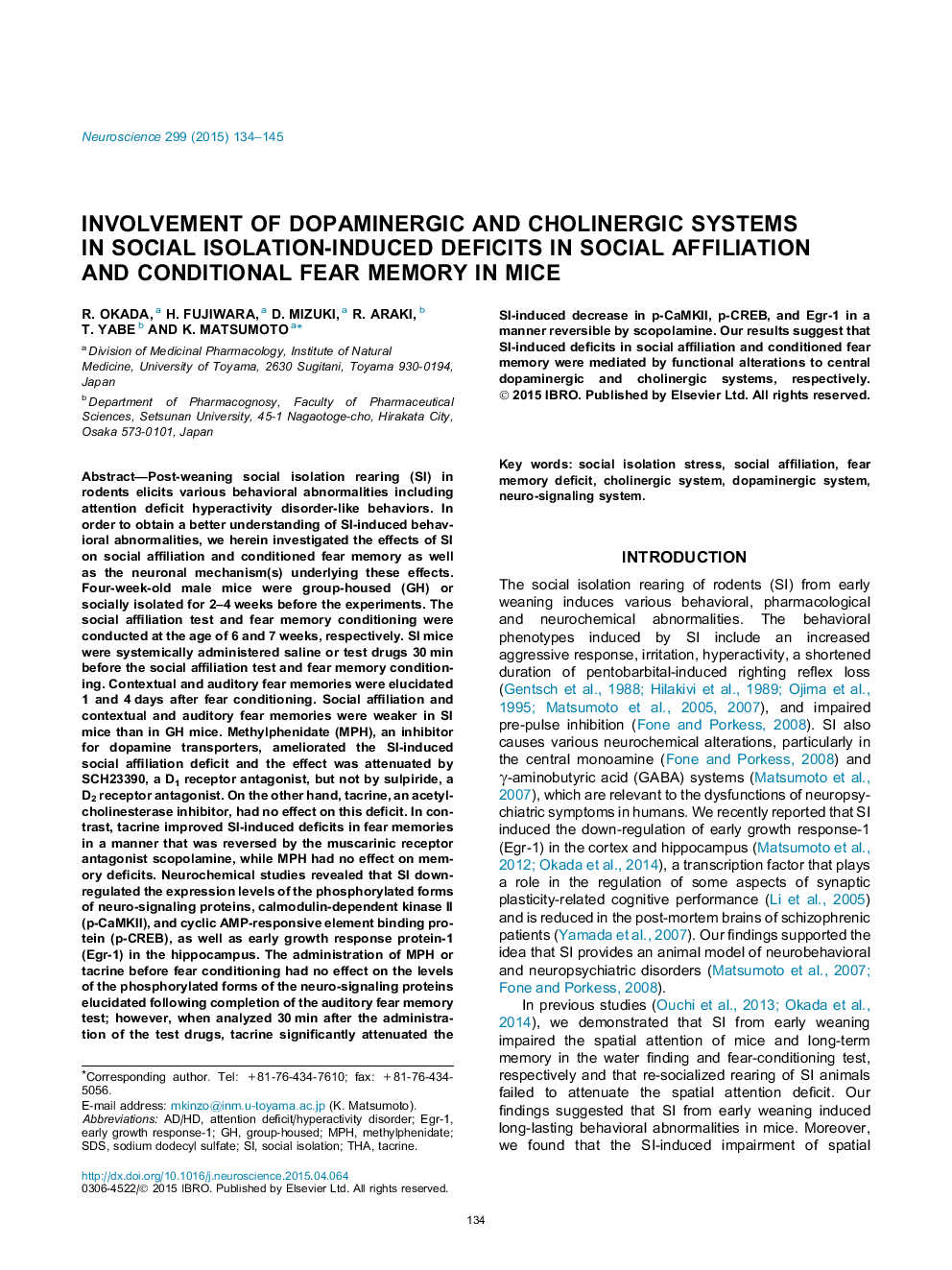| کد مقاله | کد نشریه | سال انتشار | مقاله انگلیسی | نسخه تمام متن |
|---|---|---|---|---|
| 4337467 | 1614777 | 2015 | 12 صفحه PDF | دانلود رایگان |

• Social isolation (SI) from early weaning impaired social affiliation (SA) and fear memory in mice.
• Methylphenidate improved SA deficit via dopamine (DA) D1 receptors.
• Tacrine (THA) improved fear memory deficit via muscarinic receptors.
• The effect of THA was mediated by hippocampal neuro-signaling and Egr-1 systems.
• SI impairs SA and fear memory via DA and cholinergic systems, respectively.
Post-weaning social isolation rearing (SI) in rodents elicits various behavioral abnormalities including attention deficit hyperactivity disorder-like behaviors. In order to obtain a better understanding of SI-induced behavioral abnormalities, we herein investigated the effects of SI on social affiliation and conditioned fear memory as well as the neuronal mechanism(s) underlying these effects. Four-week-old male mice were group-housed (GH) or socially isolated for 2–4 weeks before the experiments. The social affiliation test and fear memory conditioning were conducted at the age of 6 and 7 weeks, respectively. SI mice were systemically administered saline or test drugs 30 min before the social affiliation test and fear memory conditioning. Contextual and auditory fear memories were elucidated 1 and 4 days after fear conditioning. Social affiliation and contextual and auditory fear memories were weaker in SI mice than in GH mice. Methylphenidate (MPH), an inhibitor for dopamine transporters, ameliorated the SI-induced social affiliation deficit and the effect was attenuated by SCH23390, a D1 receptor antagonist, but not by sulpiride, a D2 receptor antagonist. On the other hand, tacrine, an acetylcholinesterase inhibitor, had no effect on this deficit. In contrast, tacrine improved SI-induced deficits in fear memories in a manner that was reversed by the muscarinic receptor antagonist scopolamine, while MPH had no effect on memory deficits. Neurochemical studies revealed that SI down-regulated the expression levels of the phosphorylated forms of neuro-signaling proteins, calmodulin-dependent kinase II (p-CaMKII), and cyclic AMP-responsive element binding protein (p-CREB), as well as early growth response protein-1 (Egr-1) in the hippocampus. The administration of MPH or tacrine before fear conditioning had no effect on the levels of the phosphorylated forms of the neuro-signaling proteins elucidated following completion of the auditory fear memory test; however, when analyzed 30 min after the administration of the test drugs, tacrine significantly attenuated the SI-induced decrease in p-CaMKII, p-CREB, and Egr-1 in a manner reversible by scopolamine. Our results suggest that SI-induced deficits in social affiliation and conditioned fear memory were mediated by functional alterations to central dopaminergic and cholinergic systems, respectively.
Journal: Neuroscience - Volume 299, 23 July 2015, Pages 134–145